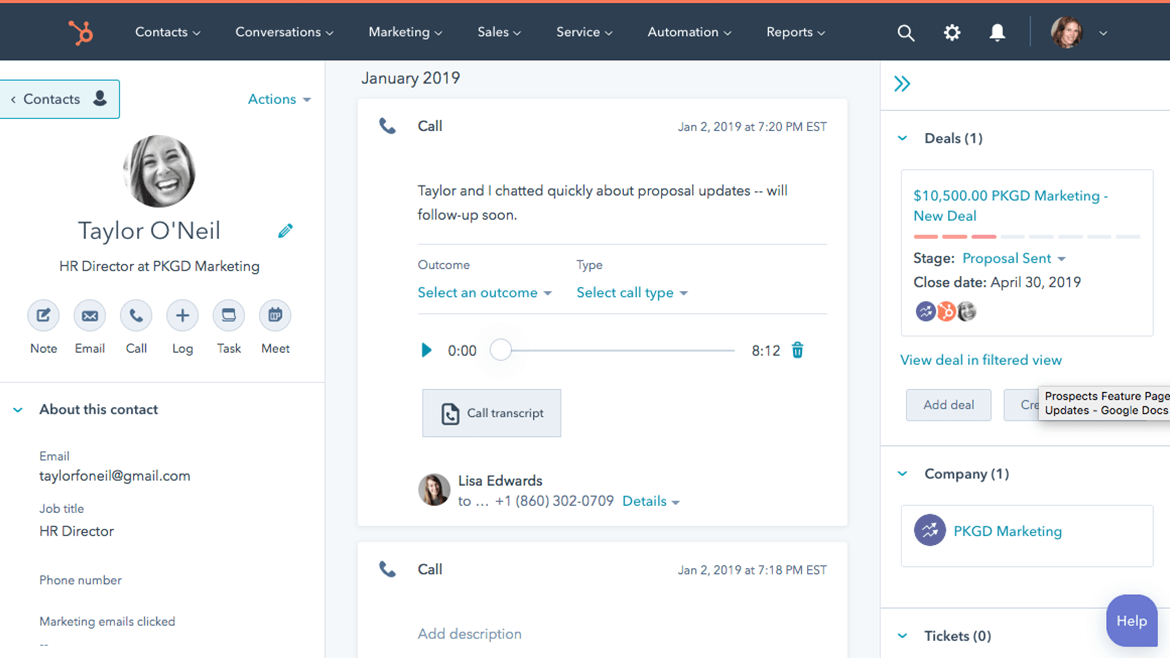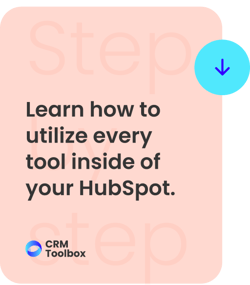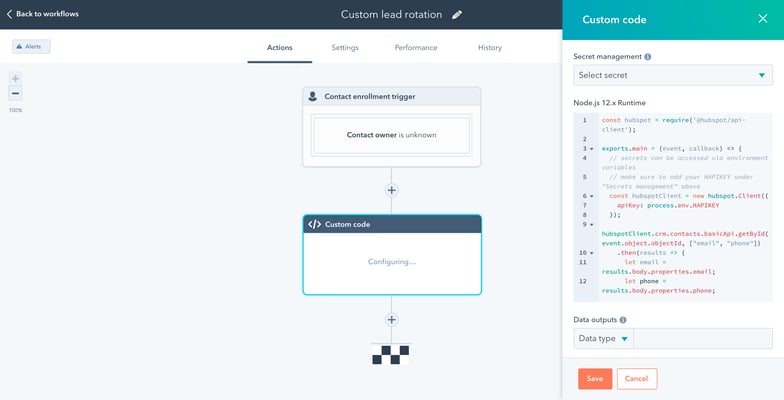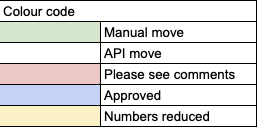Subscribe to ur Blog

It is probably not what you want to hear, but the cost of an implementation depends on your needs. In addition to the economic cost, there is also the less tangible part: the time invested. Therefore, when we talk about how much an implementation costs, the answer can never be a specific figure.
Furthermore, the price does not solely depend on the company's size or the tool/tools they are implementing. An implementation can easily spiral out of control, leading companies to spend far more than budgeted or implement with a significant delay, leading to lost sales opportunities and poor customer experience.
Where to Start?
So if everything is so varied, what is the best way to start? The best place to start is usually the selection of the platform. I do not mean that you should choose the cheapest option (again, the cheapest is not always ideal for you), but the one that best suits the needs of your business.
There are several factors that determine the cost of a CRM, such as the number of contacts you can store, platform users, and additional features.
For example, HubSpot has a completely free CRM for unlimited use, although you need to subscribe to the different hubs to really get value from the tool.
A CRM like Active Campaign can cost $49 a month for a 500-contact plan. There are also other alternatives whose subscription model is per user of the platform. For example, Monday costs $160 dollars per user in its simplest plan. In addition to that, you must consider the extra cost of additional features or applications that help adapt the CRM to your business.
With HubSpot, even though the free version is quite complete and functional, you may begin to need one of the paid versions when your business grows. They start at $540 dollars a year. The Hub Starter tier includes some automation features that will change the way your company works, and you can have up to 1,000 marketing contacts, unlimited contacts in the CRM, and the ability to remove HubSpot branding from forms, chats, landing pages, and email marketing campaigns.
Going to the next level includes a significant increase in price. The Hub Professional doubles the number of marketing contacts, but that's not all that the $9,600 per year includes; it's a more diverse package. It includes omnichannel automation, content in different languages, assigning values to your contacts and companies with automated criteria, storage, and administration of videos, A/B tests, and better reporting and analytical tools.
For companies with more complex structures, higher sales flow, much broader customer bases, and teams with hierarchical requirements, there is the Enterprise version, which has an initial annual cost of $43,200 dollars. It includes 10,000 marketing contacts, partitioning features and permissions by user type, customizable objects, Salesforce customizable object sync, multi-contact attribution, predictive contact scoring, and much more.
Understanding different platforms and tiers will allow you to make a choice that best suits your business. While choosing the right tool is crucial, good implementation can be the difference between the success of your business and its failure.
At this stage, the heaviest work is done: knowing, understanding, and acting. The first thing is to know the company, to know what the requirements and processes are. In this stage, everything your business needs is discovered and analyzed in order to make the correct strategic decisions. It is time to understand what products or services your company sells, how you sell, and what the current processes are. The different processes of your collaborators are mapped to figure out what can be automated and to optimize and unify processes that are similar. A complete diagram is made of how customer and company information is organized, what the necessary objects are, and how they should be incorporated into the platform.
Next, the necessary fields and objects are built, which are the foundations of a successful strategy.
Finally, comes the most critical stage: training. It involves presenting to the project leaders and training everyone who will be involved with it in the use of the tool. It is important for the whole team to understand how important it is to use a CRM well and optimize it. This begins with explaining what a CRM is and how its implementation is key to the success of the company and the efficiency of the processes of all the areas.
Additionally, it is a good time to define and design the panels that will be used to measure the main KPIs. Make sure to involve the area leaders and main stakeholders, so that everyone in the organization sees that a project of this level must include each and every one of the collaborators.
The cost of implementation will also depend on whether you decide to do it on your own, with a specialized agency, or directly with the platform; each of these options has different costs.
Implementing it on Your Own
In theory, this is the cheapest alternative since it depends exclusively on the resources that you allocate from your company and the time that they dedicate to carrying out the implementation. However, just because it is financially the least expensive, does not make it the cheapest. You will most likely assign a specific person to overseeing the implementation process, meaning they would carry on with less of their actual tasks. They would dedicate their time to training others and explaining why the platform matters.
You could consider having an implant, someone who has already worked with the tool in the past, become the key figure in the project. These key users have a salary cost and you should consider it as part of the implementation.
However, doing it this way will require a slower adaptation curve with more errors and setbacks. Trying to save money in areas you're not the most experienced in, such as implementation, is never a good idea, especially if you will be investing in the CRM.I say this because a bad implementation takes time to be detected and fixed. Furthermore, the cost of lost opportunity is typically higher than what is expected. In short, improving a faulty implementation would require more time, money, and most likely experts.
Implementation with the Platform
Again, this cost will depend on the platform you have chosen, but this can vary from 10,000 dollars to 20,000 dollars. Generally, when hiring a CRM, the platforms have their own implementation programs, since they are the first to know that a bad implementation only leads to unhappy customers who abandon your product early. This is why companies like HubSpot have their own implementation and training plans to ensure that objects are properly configured, data is migrated correctly, and that flows are automated. At the end of the day, who better to tell you how to get the most out of a platform than the creators themselves?
Technical specialists will also help your new CRM integrate with the technological stock you already have since the information must flow smoothly between different tools. The platform's team of specialists will also give you an extremely valuable resource, advice on how to develop advanced strategies for complex use cases within the tool, something that can be obtained with years of experience and prior training.
By hiring the company directly, you basically acquire error-proof insurance. You’ll have peace of mind knowing that everything you do after the implementation will be built on a solid foundation.
While many platforms do offer these kinds of services, not all do. You'll need to check with your tool of choice if you decide this is a path you want to take.
Implementation with a Specialized Partner
If you choose this path, make sure the agency you work with is certified by the platform you want to implement, as there are many companies that claim to be specialists but do not have the platform’s actual support. The cost of working with an agency can vary a lot, but you can find good partners that charge from $2,000 to $10,000.
With an agency, the main advantage is that it is a tailor-made solution. You can work hand in hand with this new business partner to really customize the implementation plan and better adapt it to the specific needs of your company.
In addition, as agencies, they generally have a pool of collaborators specialized in different areas, which can provide added value since you obtain knowledge from different perspectives and best practices that go beyond the initial configuration of the platform.
There are agencies that focus on specific implementation goals, others that offer a more holistic approach,and others who work as consultants only. When working with an agency, you should ensure that their main interest is to understand your business before executing the strategy. Look for those that have an important discovery plan, as this is where they will learn more about your business and can find areas of opportunity.
By going to a specialized agency, you receive a mix of the theoretical part of marketing and the essential part of having the tool perfectly configured and integrated with all your systems.
What Now?
If you have more questions than answers, that is good news. It means you are beginning to understand the magnitude of a CRM and how important it is to have the tool well configured. Doubting means that you will not make a hasty decision. A CRM is essential for the growth of your business and it is not something that you should take lightly.
I don't want you to be left with doubts either. If you still have questions or you simply want to be more certain of which option is best for you, you can schedule a call with me where we will talk about where your company is and how a good marketing and sales strategy can help you achieve your goals.
If you want to schedule a call, just click here and choose a date from my calendar.
Related Reads
Master HubSpot tools & unleash a world of endless possibilities!
Unlock Your HubSpot Powerhouse: Contact Us to Transform Your Digital Journey!

Ranya Barakat
Ranya is a serial entrepreneur with over 8 years of experience working on the HubSpot CRM. She loves pushing her sleeves up , and getting s*** done. When she is not running her HubSpot partner agency, you can find her upside down on her yoga mat.
Subscribe to our blog
The best information about inbound marketing, sales, guides and migrations.



